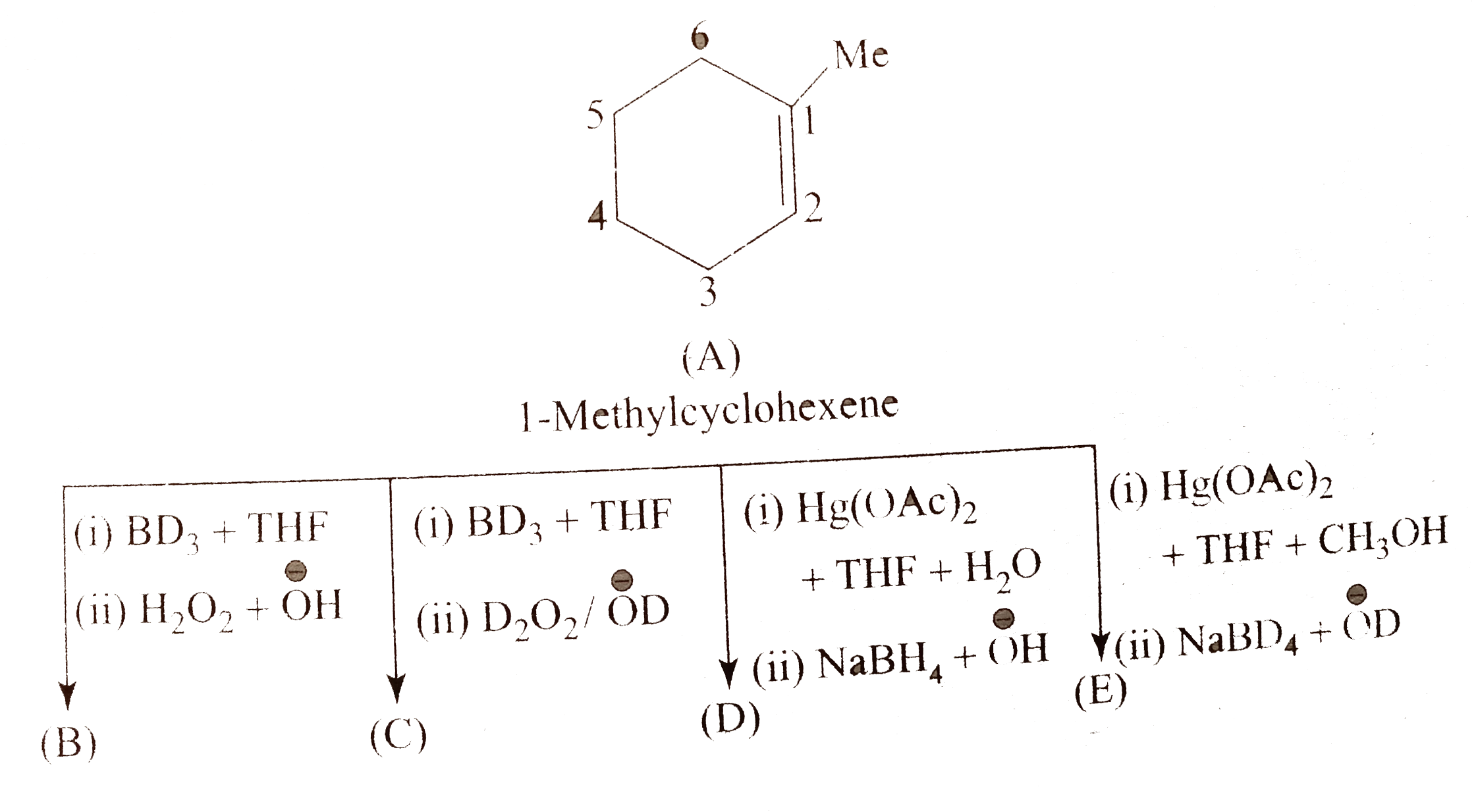
Compound (D) is :
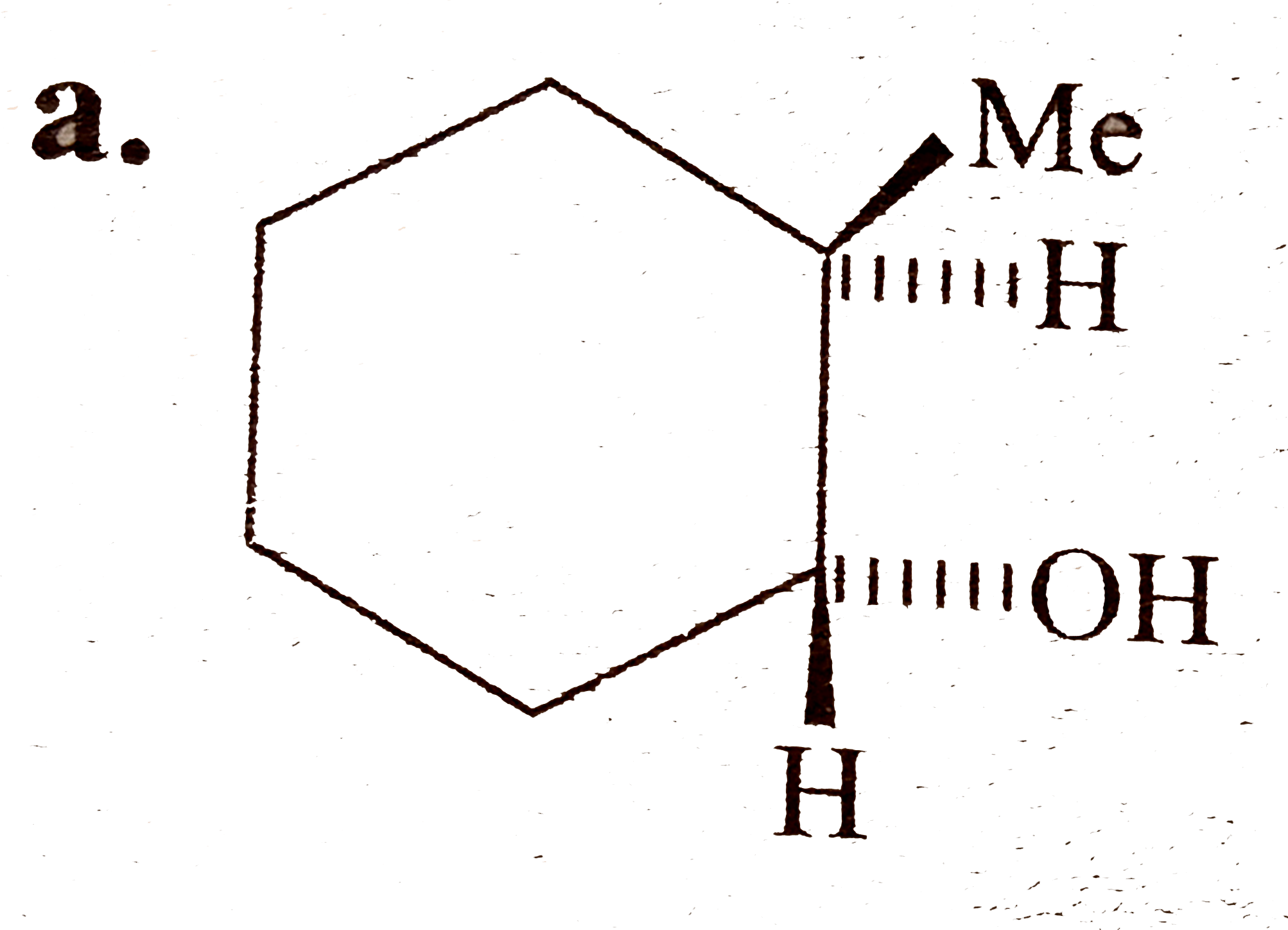
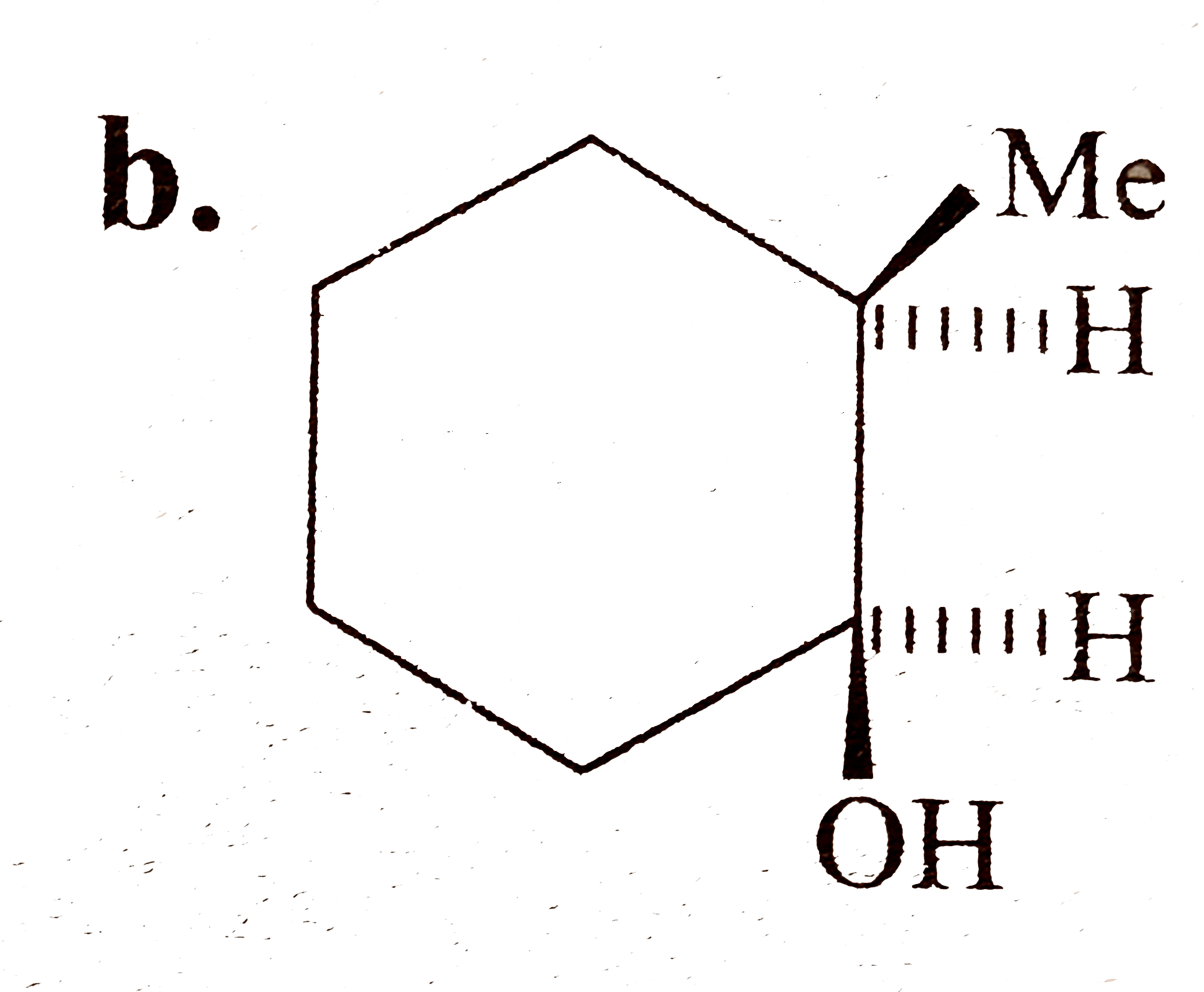
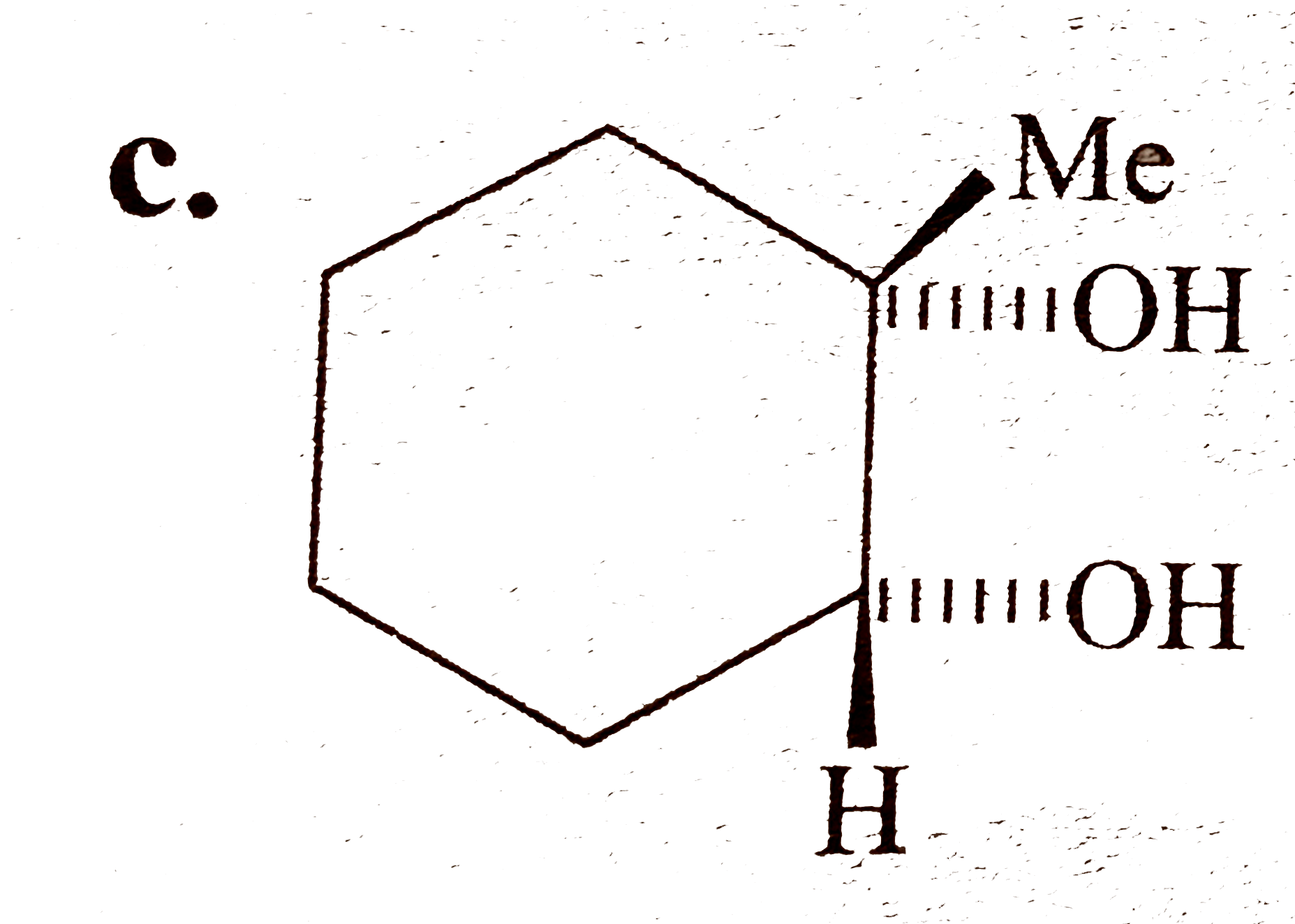
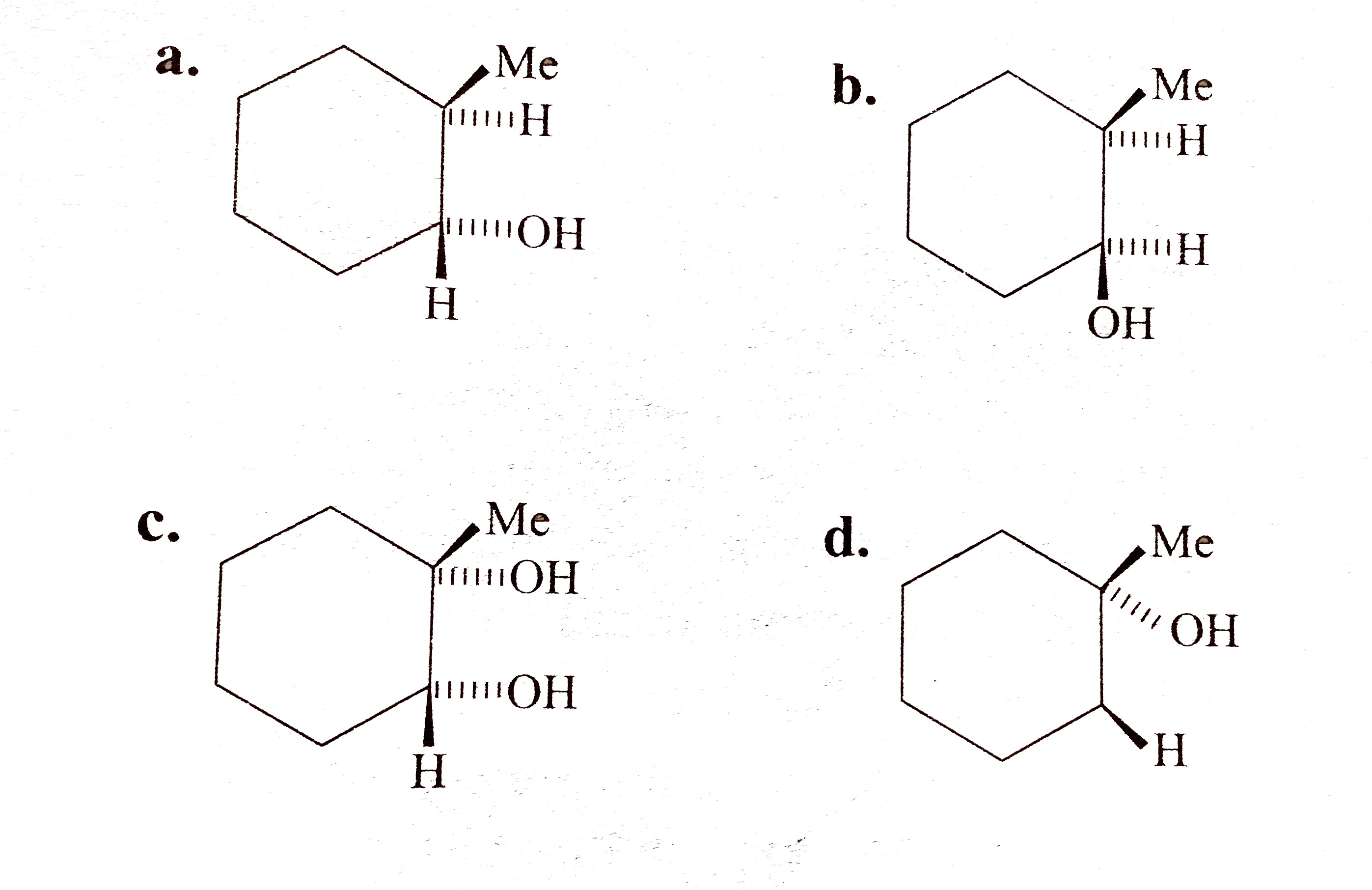
The correct Answer is:d
Anti − addition of H,OH, and OH at C atom, accordind to Markovnikov's rule.
Topper's Solved these Questions
- ALKENES AND ALKADIENESBOOK - CENGAGE CHEMISTRY ENGLISHCHAPTER - ALKENES AND ALKADIENESEXERCISE - Multiple Correct Answer Type
41 Videos
- ALKENES AND ALKADIENESBOOK - CENGAGE CHEMISTRY ENGLISHCHAPTER - ALKENES AND ALKADIENESEXERCISE - Single Correct Answer Type
62 Videos
- ALKENES AND ALKADIENESBOOK - CENGAGE CHEMISTRY ENGLISHCHAPTER - ALKENES AND ALKADIENESEXERCISE - EXERCISES
29 Videos
- ALKANES AND CYCLOALKANESBOOK - CENGAGE CHEMISTRY ENGLISHCHAPTER - ALKANES AND CYCLOALKANESEXERCISE - Archives
13 Videos
- ALKYNESBOOK - CENGAGE CHEMISTRY ENGLISHCHAPTER - ALKYNESEXERCISE - Exercises (Archives - Analytical and Desriptive Type)
4 Videos
Similar Questions
Match each of the following four structures with one of the compound A-D on the basis of the following experimental facts
Compound (A),(B) and ( C ) are optically active, but compound (D) is not
Compound (C ) gives the same products as compound (D) on treatment with periodic acid, But compound (B) gives a different product.
Compound (A) does not react with periodic acid.

Compound A-D are respectively?
View SolutionWhen an oxide of manganese (A) is fused with KOH in the presence of an oxidising agent and dissolved in water, it gives a dark green solution of compound (B). Compound (B) disproportionates in neutral or acidic (C ) oxidises potassium iodide solution to a compound (D) and compound (A) is also formed. Identify compounds A to D and also explain the reactions involved.
View Solutioni. Compound (A)
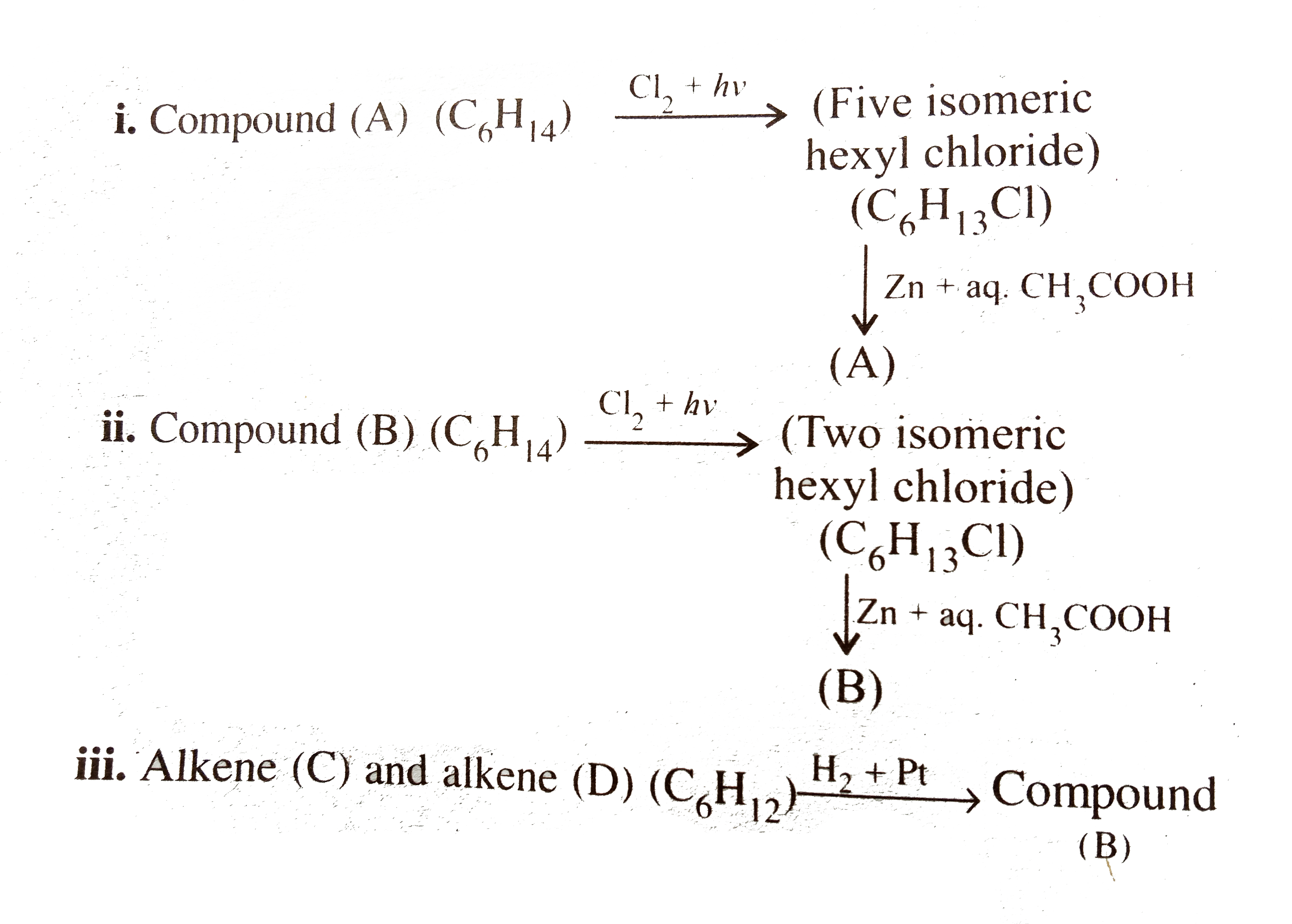
ii. Compound (B)
iii. Alkene (C) and alkane (D)
Compound (A) is:
View Solutioni. Compound (A)
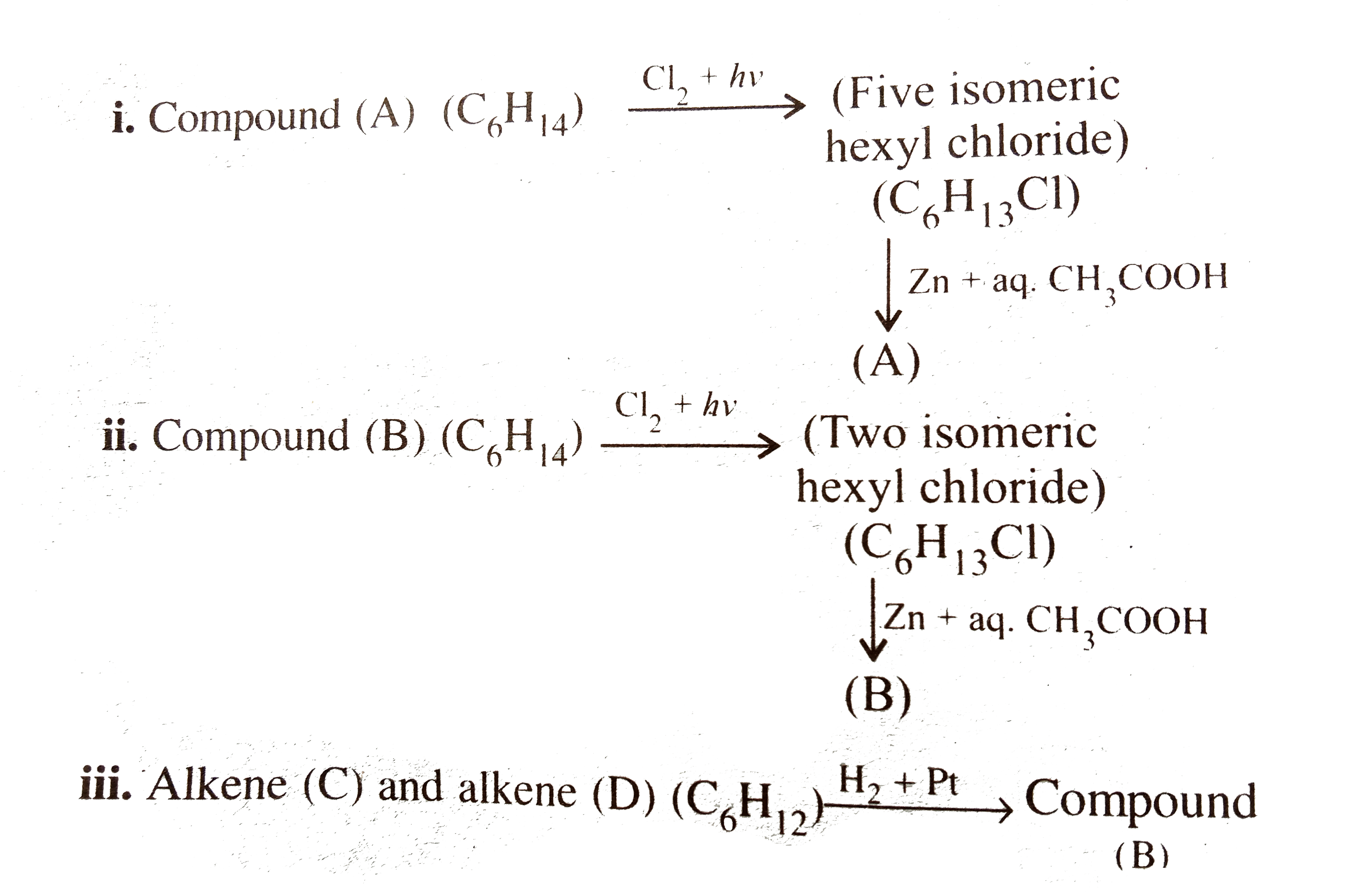
ii. Compound (B)
iii. Alkene (C) and alkane (D)
Compound (A) is:
View SolutionWhen compound (A) is treated with conc. H2SO4, a reddish brown colour gas (B) is evolved. To this solution, a solution of (C ) is added slowly from the side of the test tube, a blue ring is obtained at the junction of two layers due to formation of (D).
Compound (D) has formula :
View Solution(i) A powdered substance (A) on treatment with fusion mixture gives a green coloured compound (B). (ii) The solution of (B) in boiling water on acidification with dilute H2SO4 gives a pink coloured compound (C).
(iii) The aqueous solution of (A) on treatment with NaOH and Br2− water gives a compound (D).
(iv) A solution of (D) in conc. HNO3 on treatment with lead peroxide at boiling temperature produced a compound (E) which was of the same colour at that of (C) . Identify A,B,C,D,E
View Solution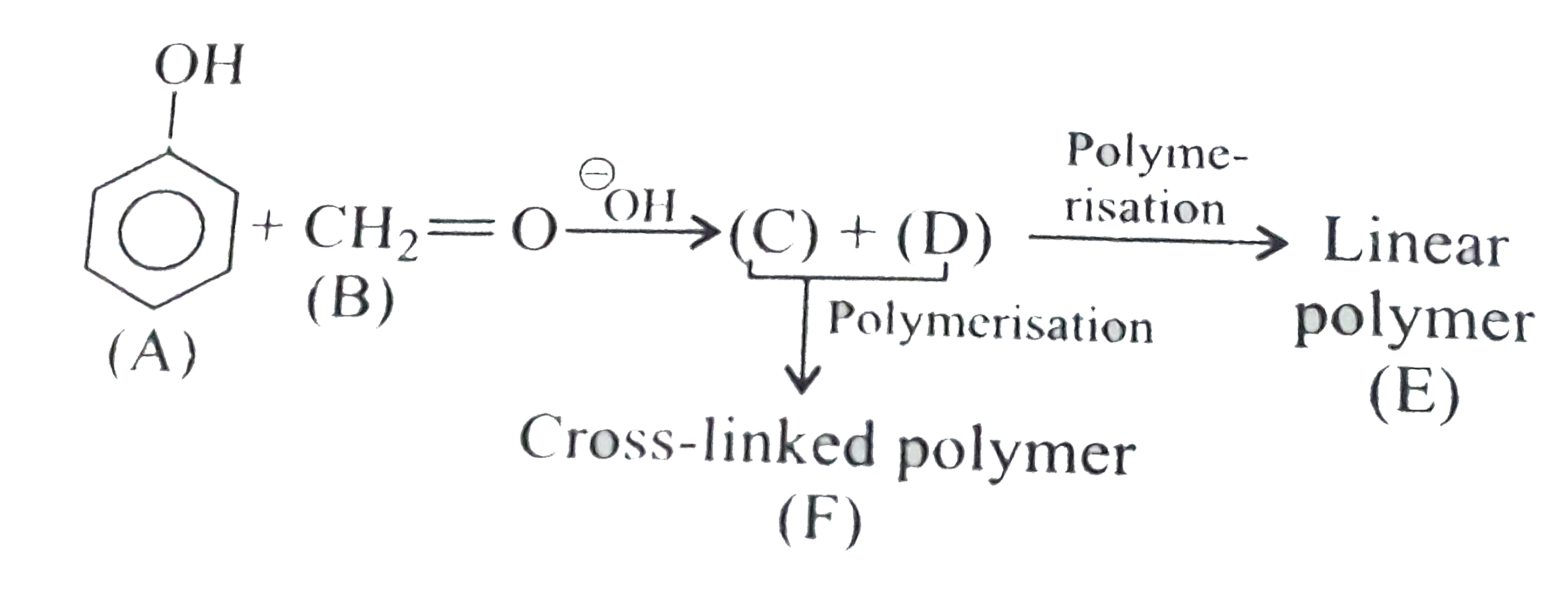
Compound (C ) and(D) are:
View Solution(A) light blue coloured compound on heating will convert into black (B) which reacts with glucose gives red compound (C) and (A) reacts with ammonium hdyroxide in excess in presence of ammonium sulphate give blue compound (D). What is (A), (B), (C) and (D)?
View SolutionAn organic compound (A) having V.D. = 30 contains C = 60.0% and H= 13%. On treatment with PCI5 it gave another compound (B) which contained 45.2% chlorine and on hydration it produced a hydrocarbon (C) containing 85.7% C and 14.3% hydrogen. On successive treatment with HI and moist silver oxide, (C) gave a compound (D) which was isomeric with (A). Identity (A), (B), (C) and (D) and explain the reactions.
View Solution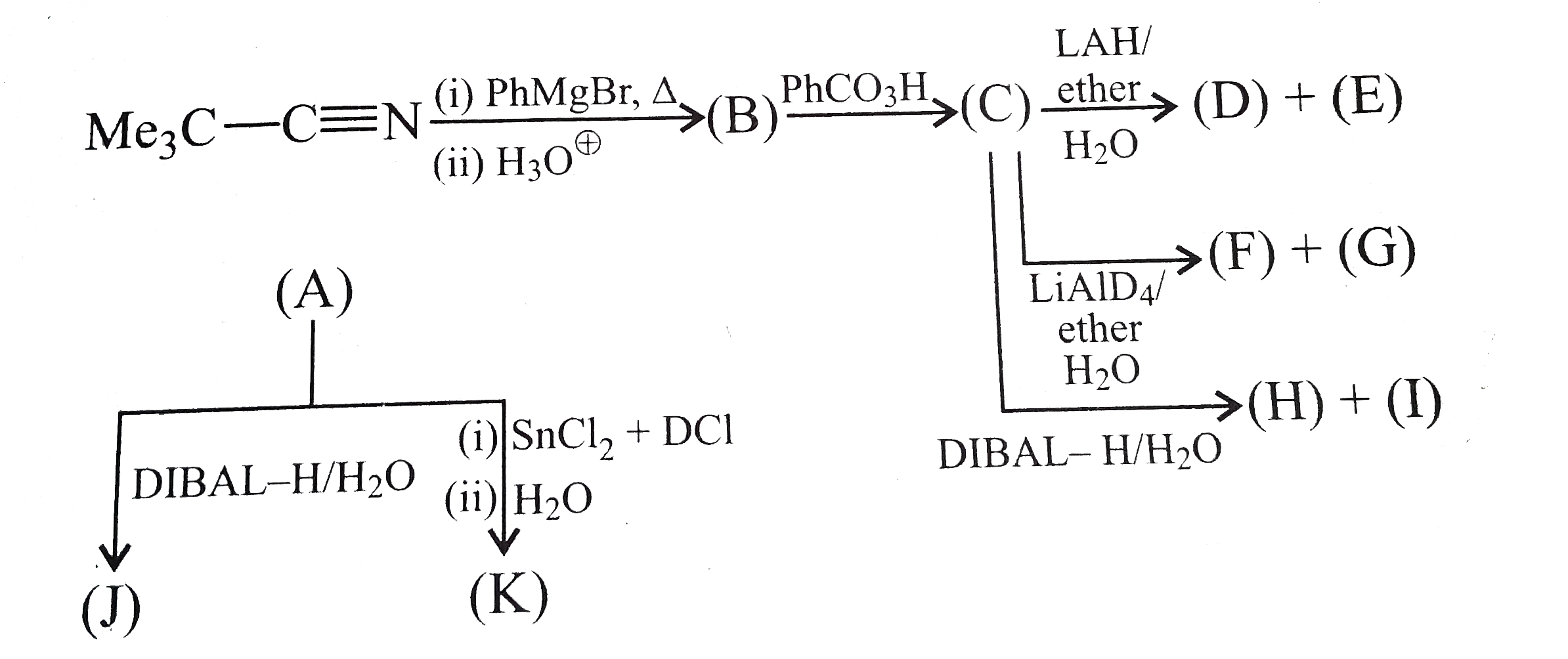
The compounds (D) and (E) respectively are:
View Solution
